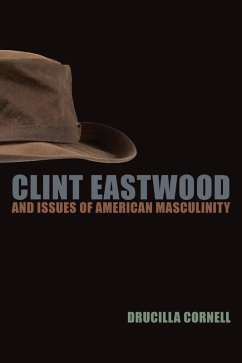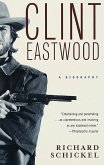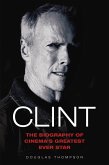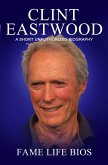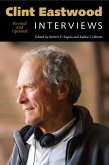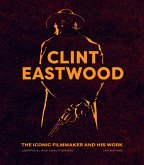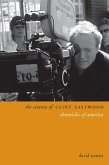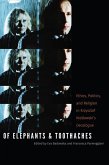Dieser Download kann aus rechtlichen Gründen nur mit Rechnungsadresse in A, B, BG, CY, CZ, D, DK, EW, E, FIN, F, GR, HR, H, IRL, I, LT, L, LR, M, NL, PL, P, R, S, SLO, SK ausgeliefert werden.

Das Greenhorn, der schimmerlose Neuling in der Welt des Westerns, tritt bisweilen in den Sonderformen des Lords und des Professors auf. Die ererbte Tugend und das erarbeitete Wissen Alteuropas sind nicht zu gebrauchen, wo es hart auf hart zugeht, in der urtümlichen Welt echter Männer. Man sollte sich vielleicht gar nicht darüber wundern, dass man in einer philosophischen Untersuchung der Filme von Clint Eastwood (Drucilla Cornell: "Clint Eastwood and Issues of American Masculinity". Fordham University Press, New York 2009. 216 S., geb., 65,- $, br., 24,- $) auf Percy Ernst Schramm stößt, "den großen deutschen Historiker des Königtums".
In den Augen von Drucilla Cornell, einer Exponentin des dekonstruktiven, rechtskritischen akademischen Feminismus, deren Essay über "Die Versuchung der Pornographie" 1997 in der edition suhrkamp erschien, ist Eastwoods Leistung die Kritik des Phantasiebildes unerschütterlicher männlicher Macht im Western und in verwandten Genres wie dem Polizei- und dem Boxerfilm. Durch furchtlose Einfühlung lege Eastwood die Traumatisierungen hinter den Chiffren von Kontrolle, Abgrenzung und Feindschaft frei; für die Männer, die er darstellt, wird in Drucilla Cornells Deutung das Ausagieren von Zwangscharakterzügen zum Medium der Emanzipation. Um zu verstehen, durch welche Codes eine Gesellschaft der hohlen, angestoßenen oder geflickten Autoritätsfiguren stabilisiert wird, kann die Professorin für Politologie, Frauenstudien und Vergleichende Literaturwissenschaft der Rutgers-Universität neben anderen toten weißen europäischen Männern wie Lacan, Derrida und Kant auch den Verfasser der drei Bände "Herrschaftszeichen und Staatssymbolik" gebrauchen.
Drucilla Cornell nimmt wörtlich, was in "Mystic River" die Frau des Bandenchefs Jimmy ihren Töchtern über ihren Mann sagt: Er ist ein König. Und als solcher, führt die ehemalige Rechtsprofessorin aus, hat er ein natürliches Recht auf die Vergeltung, die er am vermeintlichen Mörder seiner Tochter übt. Diesem Naturrecht des zum Herrschen geborenen Mannes werde zwar die Gesetzestreue des Polizisten Sean gegenübergestellt, doch Eastwood entscheide diesen Konflikt nicht - richtigerweise, denn König Jimmy verkörpere eine legitime Gegenposition zum liberalen Rechtspositivismus. Schade allerdings, dass aus dem Schramm-Verweis nicht hervorgeht, ob sich bei Schramm wirklich Belege für eine Befugnis des Königs zum außerrechtlichen Vergelten finden. Nicht auf dem Stand der mediävistischen Forschung ist Drucilla Cornell jedenfalls, wenn sie proklamiert: "Ein König weint nicht; er handelt." Ein wirkungsreicher Aufsatz von Gerd Althoff, jüngst sogar Gegenstand monographischer Widerrede (F.A.Z. vom 25. Februar), heißt "Der König weint".
Das Herrschaftszeichen von Eastwoods Inspektor Harry Callahan war der gezückte Revolver im Kaliber .44 Magnum. Dass es sich nicht wie eine Parodie kulturwissenschaftlicher Theorieanstrengungen liest, wenn Clint Eastwood bescheinigt wird, das Telos der Persönlichkeitsbildung seiner Helden sei die Einwilligung in die symbolische Kastration - das illustriert, wie erstaunlich das Werk des Mannes ist, dessen heutigen achtzigsten Geburtstag wir schon in der Samstagsausgabe gefeiert haben.
PATRICK BAHNERS
Alle Rechte vorbehalten. © F.A.Z. GmbH, Frankfurt am Main

